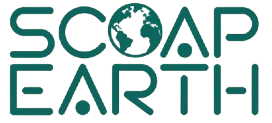Top 5 Open-Source Tools Revolutionising Data Science Workflows

Open-Source Tools: Data science has transformed how businesses operate, enabling them to make smarter, data-driven decisions. Yet, the true power behind this transformation lies in the tools that data scientists use daily. Over the years, open-source tools have become the backbone of modern data science workflows, offering flexibility, scalability, and continuous innovation without the heavy price tag of commercial software.
Table of Contents
As we move further into 2025, the landscape of data science tools is evolving rapidly. New frameworks are not only improving efficiency but also making complex processes like model deployment, data version control, and automated machine learning much more accessible. Whether you’re a budding data professional or a seasoned expert, knowing which tools are shaping the future can give you a significant edge.
Let’s explore the top five open-source tools that are revolutionising data science workflows this year.
1. Apache Airflow: Orchestrating Complex Data Pipelines
Managing data pipelines manually can be a cumbersome and error-prone task. Enter Apache Airflow, an open-source platform designed for programmatically authoring, scheduling, and monitoring workflows. Originally developed at Airbnb, Airflow has quickly become an industry standard for data pipeline orchestration.
Why It’s Game-Changing (Open-Source Tools):
- Dynamic Pipelines: Define workflows as code using Python, enabling dynamic pipeline generation.
- Extensibility: Supports integration with major data tools like AWS, Google Cloud, Spark, and Hive.
- Scalability: Easily scales from a single server to distributed systems.
By adopting Airflow, teams can automate repetitive tasks, reduce manual errors, and ensure smoother collaboration across departments. For those involved in large-scale ETL (Extract, Transform, Load) operations, mastering Airflow is no longer optional — it’s essential.
2. MLflow: Simplifying the Machine Learning Lifecycle
Developed by Databricks, MLflow is an open-source platform designed to actively manage the entire machine learning lifecycle, from experimentation to deployment. One of the biggest challenges in data science is tracking experiments and ensuring reproducibility. MLflow addresses this gap effectively.
Why Open-Source Tools are Game-Changing:
- Experiment Tracking: Keeps a log of all experiments, parameters, and results.
- Model Registry: Centralised repository for managing model versions.
- Deployment Flexibility: Supports deploying models on diverse platforms like Kubernetes, SageMaker, and Azure ML.
MLflow’s simplicity and robust architecture make it ideal for individual data scientists and enterprise teams alike. It standardises the workflow, making collaboration smoother and transitions from research to production seamless.
3. DVC (Data Version Control): Versioning Beyond Code
While Git revolutionised code versioning, datasets and machine learning models remained untracked — until DVC emerged. Data Version Control extends Git capabilities to handle datasets and ML models, offering complete version control across the project lifecycle.
Why It’s Game-Changing:
- Data Lineage: Track every change in your datasets and models, ensuring reproducibility.
- Storage Flexibility: Works with local storage, cloud storage, and remote servers.
- Pipeline Management: Automates data workflows, making them more modular and maintainable.
For teams working on collaborative projects where data changes frequently, DVC brings structure and reliability. It bridges the gap between data science and software engineering best practices.
4. Streamlit: The Fastest Way to Build Data Apps
Data scientists often struggle with turning their models and analyses into interactive applications that non-technical stakeholders can understand. Streamlit solves this challenge by allowing users to build custom web apps with pure Python scripts — no front-end experience required.
Why It’s Game-Changing:
- Simplicity: Write apps in Python without needing HTML, CSS, or JavaScript.
- Rapid Prototyping: Turn data projects into interactive dashboards in hours, not days.
- Community Support: A large and active community constantly contributes new components and templates.
Streamlit democratises data science by making insights and models accessible to a wider audience. In the corporate world, this is invaluable for aligning technical and business teams.
5. Hugging Face Transformers: Pioneering Natural Language Processing
Natural Language Processing (NLP) has surged to the forefront of AI applications, from chatbots to search engines. The Hugging Face Transformers library has become the go-to solution for implementing cutting-edge NLP models.
Why It’s Game-Changing:
- Pre-Trained Models: Access to thousands of pre-trained models like BERT, GPT, and RoBERTa.
- Multi-Framework Support: Works with PyTorch, TensorFlow, and JAX.
- User-Friendly API: Simplifies complex NLP tasks like sentiment analysis, translation, and summarisation.
For any data scientist delving into text analytics or conversational AI, Hugging Face Transformers drastically reduce development time while boosting model performance.
The Growing Importance of Open-Source in Data Science
The rise of open-source tools is more than a trend; it’s a paradigm shift. These tools offer several distinct advantages over their commercial counterparts:
- Cost Efficiency: Open-source solutions eliminate licensing fees, making them attractive to startups and large enterprises alike.
- Flexibility: Most tools are highly customisable to suit unique business needs.
- Community-Driven Innovation: Continuous contributions from global communities ensure rapid evolution and support.
- Transparency: Open codebases promote trust and security, especially in sensitive applications like finance and healthcare.
By incorporating these tools into their workflows, data science teams can operate more efficiently, innovate faster, and deliver higher-value outcomes.
Building Skills for the Modern Data Science Stack
As the ecosystem of tools expands, so do the skill requirements for data professionals. Mastering these emerging technologies requires a structured approach:
- Foundational Knowledge: Core skills in Python, SQL, and statistics remain crucial.
- Cloud Competency: Familiarity with AWS, Google Cloud, and Azure is increasingly important.
- MLOps and Pipelines: Tools like MLflow and DVC bring software engineering practices into data science.
- Visualisation Skills: Tools like Streamlit enable effective communication of results.
- Specialisations: NLP, computer vision, and reinforcement learning are growing niches with dedicated tools.
For those serious about a long-term career, formal education can be invaluable. Enrolling in a data science course can provide structured learning paths that combine theoretical knowledge with hands-on experience using these cutting-edge tools.
Hyderabad: A Growing Hub for Data Science Talent
In India, cities like Hyderabad are rapidly emerging as hotspots for data science talent. With tech giants and various startups alike setting up shop, the demand for skilled professionals is soaring. If you’re considering advancing your career, enrolling in a data scientist course in Hyderabad could be a strategic move.
Hyderabad’s tech ecosystem also offers ample opportunities for networking, internships, and collaborations, making it an ideal city for anyone looking to establish themselves in the field.
Looking Ahead: The Future of Data Science Tools
As we look toward the future, several trends are shaping the next generation of data science tools:
- AutoML Growth: More tools will automate model selection, tuning, and deployment.
- Real-Time Analytics: Streaming data processing tools will become more mainstream.
- No-Code and Low-Code Platforms: Tools that lower the barrier for non-programmers will see widespread adoption.
- Privacy-Focused Solutions: Data privacy regulations will spur innovation in secure data processing.
- Interoperability: Seamless integration between tools will be a key focus area.
Staying informed and adaptable will be the key to thriving in this dynamic environment.
Final Thoughts: Evolve Your Workflow, Elevate Your Impact
The world of data science is no longer confined to a handful of tools. Today, a rich ecosystem of open-source platforms is reshaping how data professionals work, collaborate, and deliver results. By embracing tools like Apache Airflow, MLflow, DVC, Streamlit, and Hugging Face Transformers, you not only streamline your workflows but also enhance the value you bring to your organisation.
Whether you’re a newcomer exploring your first data science project or a seasoned expert looking to upgrade your toolkit, now is the time to diversify your skills and adopt the technologies that are driving the field forward.
ExcelR – Data Science, Data Analytics and Business Analyst Course Training in Hyderabad
Address: Cyber Towers, PHASE-2, 5th Floor, Quadrant-2, HITEC City, Hyderabad, Telangana 500081
Phone: 096321 56744





